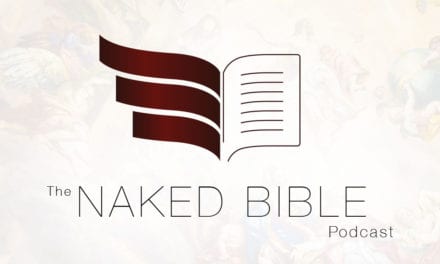This is a worthwhile review of what sounds like a worthwhile book. Readers know that I have long contended that any discussion of inerrancy requires serious discussion of the definitional problems. This book shows a keen awareness of that initial task. Wallace writes:
Defining Inerrancy . . . is a gloves-off defense and affirmation of a version of inerrancy that many are not acquainted with. That is, many except those who are Old and New Testament scholars.
Wallace notes that the book at this point is only an e-book (96 pp.), though he was supplied a hard copy for review. I don’t have a Kindle, so I’m hoping that it will appear in hard copy for purchase as well. For those of you who do, however, and who are interested in this important subject, this appears to be an important read.






There is a free Kindle app for various platforms, but I’m not sure what’s involved with it’s use.
http://www.amazon.com/gp/feature.html?docId=1000493771
I like the term NT Wright uses, the bible is a narrative.
I, being a fundamentalist/biblicist originally, really had to work through some issues when it’s obvious there are things in there that are not accurate, just as an example, the iron dome in the sky.
I just dropped the term “inerrant” for my own personal use and am a fan of James DG Dunn’s view of oral tradition/synoptic problem and how that works. Likely works for the entire text except the cosmology part.
Hello Dr. Heiser,
Thank you for your kind words. We actually supplied Dr. Wallace with an electronic, non-Kindle file (PDF, as I recall). The manuscript as it now stands is too short for submission to a traditional “hard copy” publisher, but we’re looking at an expanded edition suitable for submission, which will include chapters by scholars interested in the debate. I’m working on a very basic plan for that right now.
Again, thank you so much!! By the way, I found your work on the issue of monotheism very helpful.
JP
Understood. You might want to check out our new imprint, Lexham Press. We’ve done shorter works. I got an email from Nick, so I’ll find some way to read it.
http://lexhampress.com/
Thank you very much for sharing this review and letting people know about our book! I would be glad to provide you with a free review copy if you wish!
Mike, you do not need a Kindle e-Reader to download and read the book. You only need to download the PC or Mac application, and read it on your computer. You can even manually copy-paste a few chapters from the Kindle e-Reader, paste it into a Word document, and save it as a PDF–a bit like exporting from Logos, but more of a manually process. The point is that the app is fairly flexible and it syncs your notes and highlights on your other devices.
http://www.amazon.com/gp/feature.html/ref=sa_menu_karl?ie=UTF8&docId=1000493771
http://www.amazon.com/gp/feature.html/ref=kcp_pc_ln_ar?docId=1000426311
I have the Kindle app on my computer, Galaxy Nexus, and, evidently, the Kindle e-Reader.
I’ll try that; one of the authors has offered to send me a copy. Thanks!
I read through the book.
As someone not involved with the ETS (or a professional scholar involved in the field), I think it’s not the most relevant book out there for someone interested in a serious discussion on inerrancy. Rather, it’s largely a response to Geisler and Farnell, personally calling them out on various actions and words through the years.
Leaving aside the response portion, I thought it was a good critique of the concept of taking the bible perfectly literally. I remember talking once to a person who said (slightly paraphrased due to time), “It’s written down and I believe it literally as written”.
I’d enjoy reading a reasonable & relatively thorough discussion of the nuances of the inerrancy/infallible/etc thing.
~Paul
Thanks for the note; this is helpful; I haven’t gotten the file yet. It’s relevant because, even at ETS, that’s where the discussion is for many.
Thanks, Paul, you’re quite correct. Due to the unexpected level of positive reaction, we’re planning a revised/expanded version that will be less of a direct response to Geisler, et al and more relevant to inerrancy in general.